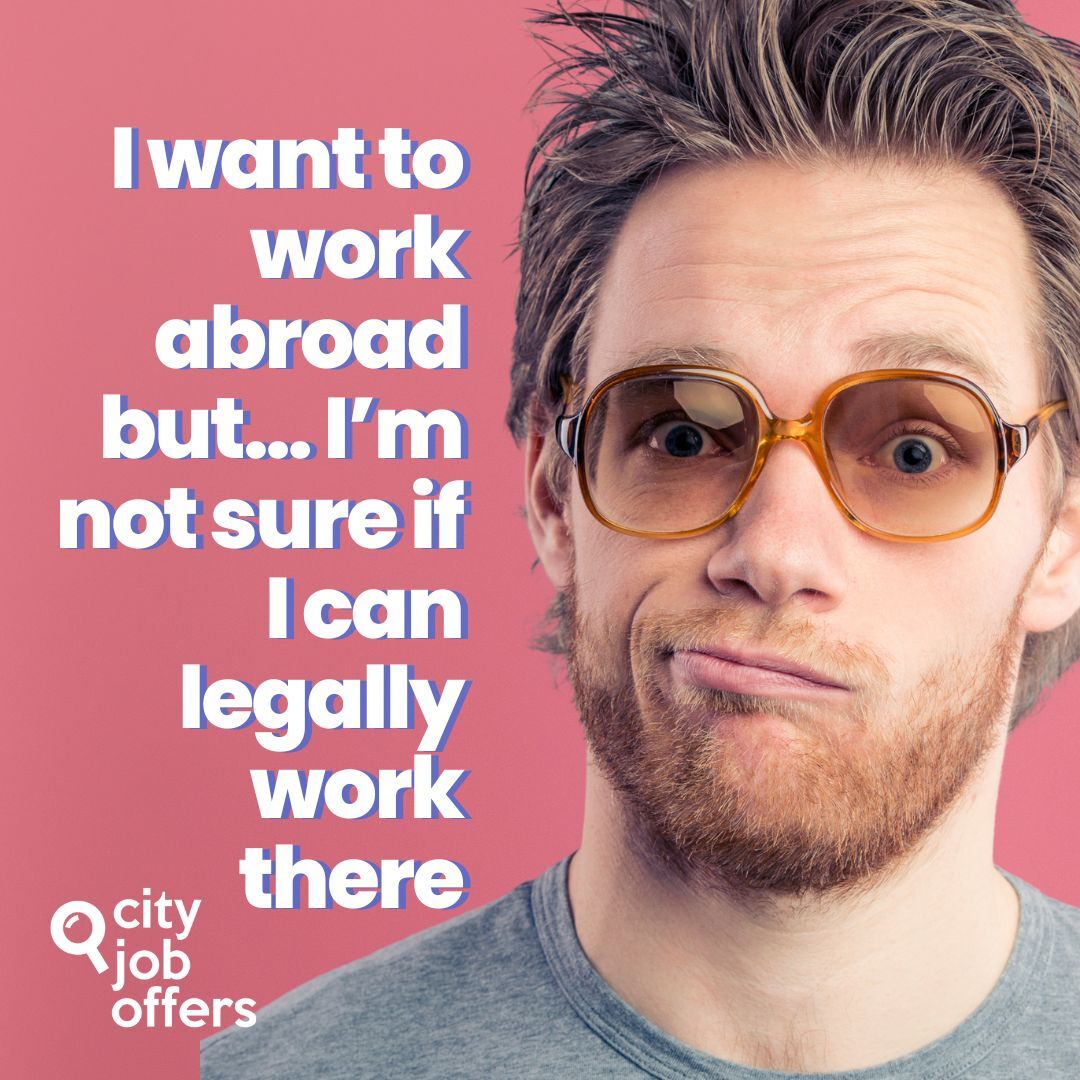
Your quick guide to visas, work permits & countries that welcome EU citizens
Thinking about starting a new chapter abroad? Exciting! 🌍 But before you pack your bags, there’s one big question: can you actually work there legally? Let’s break it down so you know exactly what steps to take — no guesswork, no unpleasant surprises.
1) First things first: where are you going?
A) If you’re an EU citizen moving to another EU/EEA country or Switzerland
-
Good news: you don’t need a visa or work permit.
-
You may still need to register your residence after 3 months and sort out your local tax number or social security.
-
For regulated professions (like healthcare, education, or engineering), you might need your qualifications officially recognised.
B) If you’re heading to the UK (post-Brexit)
-
You will need a work visa unless you have EU Settlement status.
-
Most UK work visas require a job offer from an approved sponsor, a minimum salary, and English language proof.
C) If you’re going beyond Europe (USA, Canada, Australia, Asia, LATAM)
-
You’ll need a visa or work permit.
-
Some countries offer Working Holiday/Youth Mobility visas for young applicants, or Digital Nomad visas if you work remotely.
💡 Pro tip: As a tourist in the Schengen Area, remember the 90/180 rule — you can’t legally work without the correct permit.
2) How to check if you can work legally — in 5 quick steps
-
Pick your destination and check if it’s in the EU/EEA/Switzerland (free movement) or not.
-
Define your work type: local employment, remote freelance, internship, seasonal work, au pair, etc.
-
Check qualification recognition if your job is regulated.
-
Gather key documents: job offer, proof of funds, health insurance, police clearance, degree certificates, etc.
-
Confirm everything with the country’s official embassy or immigration ministry.
3) Quick country guide — popular destinations for EU citizens
| Destination | Need a visa if you’re an EU citizen? | Popular work routes | Extra tips |
|---|---|---|---|
| Spain | No | Hospitality, tourism, remote work | Register for NIE & social security |
| Portugal | No | Customer service, tech, remote work | NIF number needed for contracts |
| Germany | No | Engineering, healthcare, manufacturing | Anmeldung (residence registration) is mandatory |
| Netherlands | No | Logistics, tech, finance | Get BSN number before starting work |
| Ireland | No | IT, finance, hospitality | PPS number needed for payroll |
| United Kingdom | Yes | Skilled Worker visa, seasonal work visa | Check sponsor list before applying |
| USA | Yes | H-1B, J-1, seasonal work visas | Applications can take months — plan ahead |
| Canada | Yes | IEC (Working Holiday), skilled worker visas | Proof of funds often required |
| Australia | Yes | Working Holiday visa, skilled visas | Age limits apply for WH visas |
| Mexico | Yes | Temporary resident visa with work permit | Easier if hired by local company |
| United Arab Emirates | Yes | Employer-sponsored visa | No income tax but high cost of living |
| Thailand | Yes | Work permit + non-immigrant visa | Digital Nomad visa pilot in progress |
Sofia, 27, from Spain → Netherlands
“I thought I’d need a special visa to work in Amsterdam, but as an EU citizen it turned out I just had to register my address and get a BSN number. The whole process took less than a week.”
Marco, 32, from Italy → UK
“Post-Brexit made everything sound complicated. Once I learned I needed a Skilled Worker visa, I focused my job search only on companies that were approved sponsors — that saved me months of wasted applications.”
Anna, 24, from Germany → Portugal (as a Digital Nomad)
“I wasn’t sure if I could live in Portugal while working for my German employer. The Digital Nomad visa made it totally legal — I even got access to local healthcare.”
5) Your pre-flight checklist
✔ Passport valid for at least 6–12 months
✔ Job offer letter (if needed)
✔ Health insurance
✔ Proof of funds
✔ Visa appointment booked
✔ Translated/apostilled documents if required
✔ Local registration plan for after arrival
6) Frequently asked questions
❓ Can I enter as a tourist and start working?
No. Working without the correct visa/permit can result in fines, deportation, or a ban.
❓ If I’m an EU citizen, can I start working in another EU country right away?
Yes, but remember to register if you stay longer than 3 months.
❓ Can I switch visas once I’m in the country?
Sometimes — but in many countries, you must apply from your home country.
❓ What’s the difference between a Digital Nomad visa and a work visa?
A work visa is tied to a local employer; a Digital Nomad visa lets you work remotely for non-local companies or clients.
❓ Do I need to speak the local language?
Not always. Many international companies operate in English — but knowing the basics of the local language will help with everyday life and paperwork.
Ready to make it happen?
At City Job Offers, we help you find international jobs — including roles that offer visa sponsorship. Whether you’re planning a temporary adventure or a long-term move, we guide you towards opportunities that are legal, safe, and right for you.


